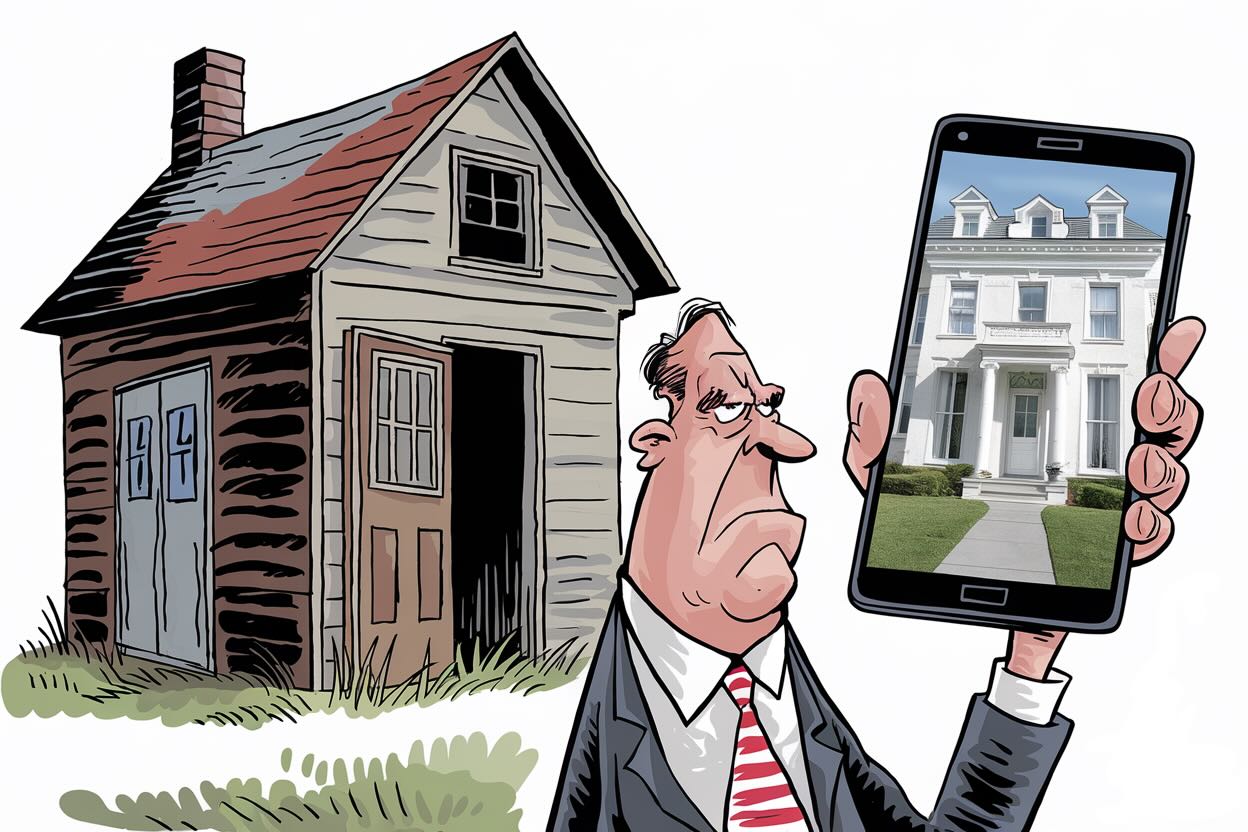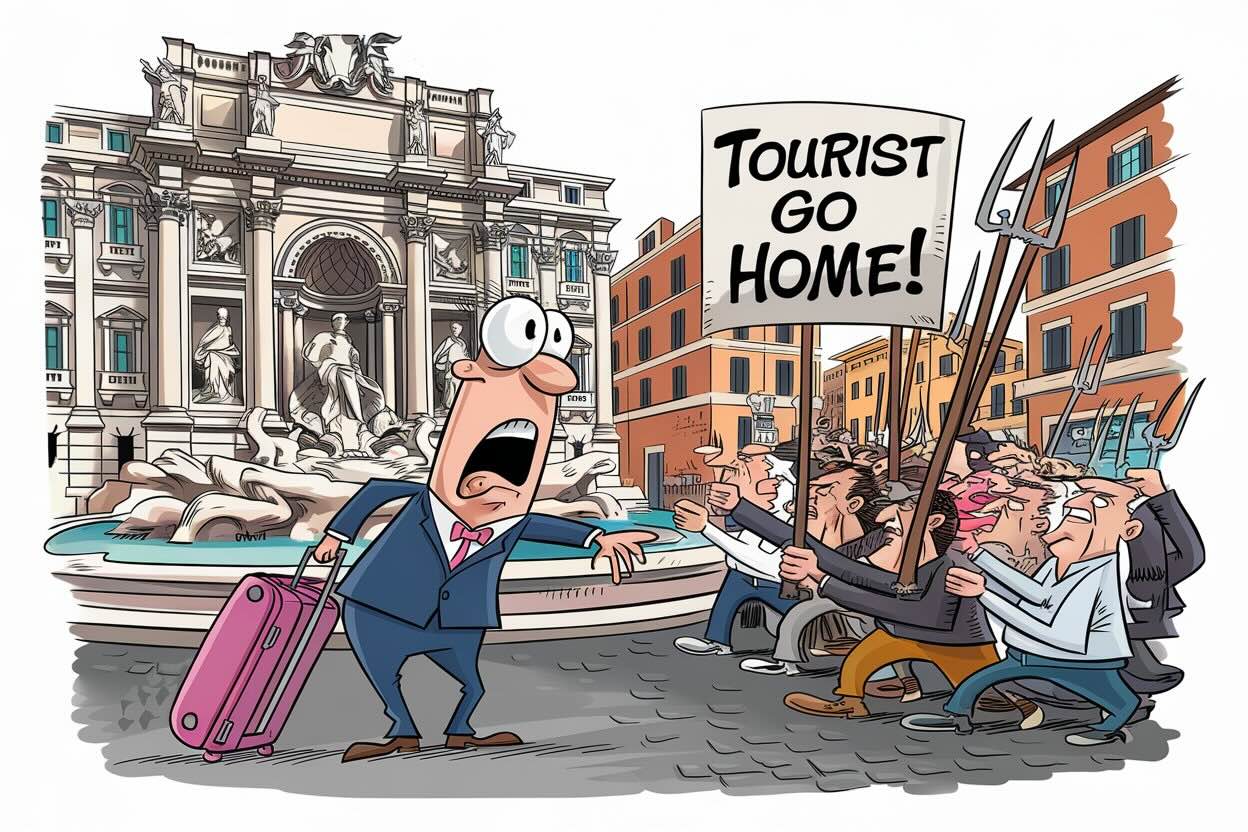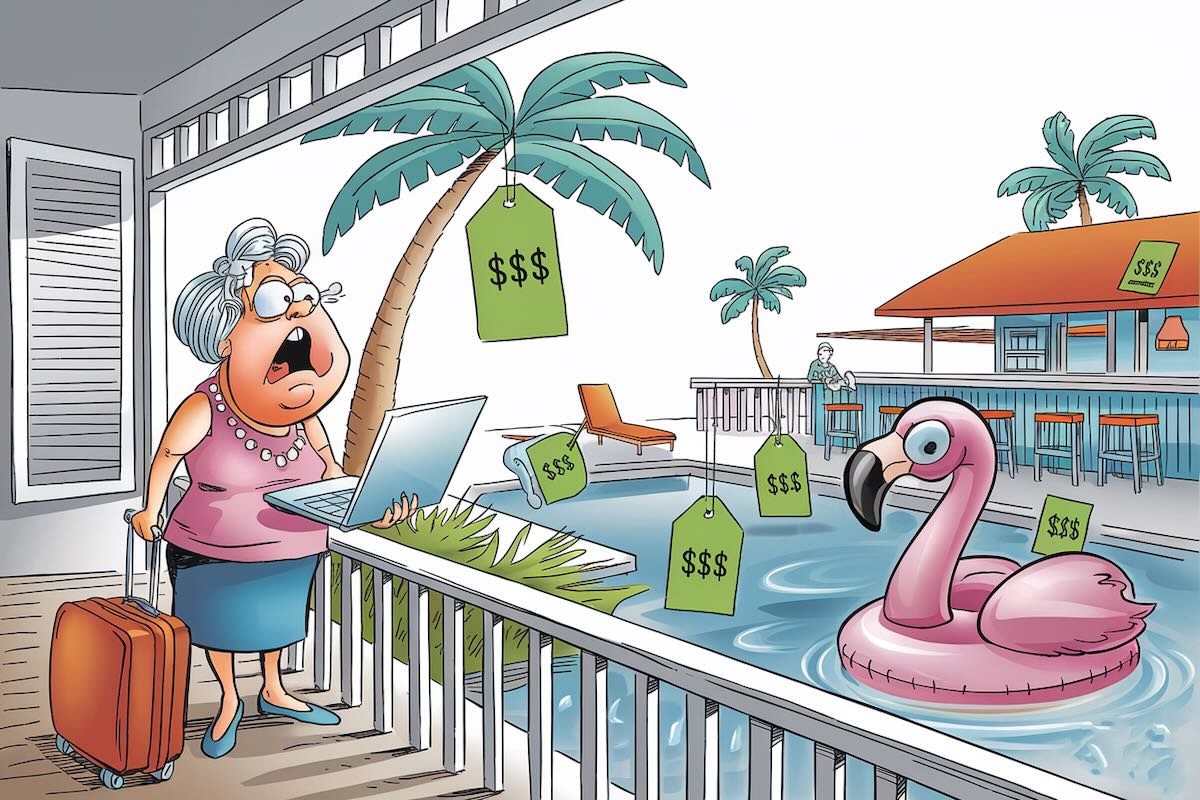A few weeks ago, Scott Mayer received an email from United Airlines that said his flight from Minneapolis to Florence, Italy, had been canceled and that he owed $600 in “cancellation” fees. But it was a travel fake.
United says it didn’t send it.
Mayer, an event producer from Minneapolis, had been contacted by a scammer who was trying to prod him into sharing personal information — his address, birthday, and credit card number.
Travel fakes like this are on the uptick in 2025. Criminals are using artificial intelligence to create fake websites, listings and social media profiles designed to separate you from your money.
But you don’t have to become a statistic.
A fake United email — and a fake call center
Mayer says he called United and was transferred to someone who claimed to work for the airline.
Although Mayer refused to pay the $600 — which was the right call since United doesn’t charge a cancellation fee for flights it cancels — his flight somehow got canceled, anyway. He had to pay $1,596 for a ticket on another airline.
But when Mayer called United to get this resolved, it offered him neither an explanation nor a refund.
“I would like to be reimbursed for my canceled flights,” he told me.
I asked United to take a closer look at Mayer’s cancellation.
“Unfortunately, we believe this customer fell victim to a scam,” United spokeswoman Erin Jankowski told me.
The airline refunded his flight — a rare happy ending.
Jankowski noted that contacting it directly via United.com or the United mobile app for any booking or reservation changes would prevent future scams.
Perhaps. But the scammers are smart.
What other travel fakes are out there?
Fake vacation rentals
You find the perfect beach house, but when you arrive, it’s a run-down shack. Or worse, the property doesn’t exist.
“It’s so frustrating to arrive at your vacation accommodation and discover it looks nothing like how it was advertised,” says Don Jones, managing director of Andrew Harper, a travel company. “This happens all too often.”
How to avoid being burned? Do a reverse image search to see if the property photos are legit. Also, cross-check listings on multiple platforms.
“Listings with no reviews may be a red flag,” advises Abhishek Karnik, head of threat research at cybersecurity company McAfee. “In addition, try to validate the site exists by checking to see whether it has been referenced in legitimate media outlets.”
Fake airline and travel agency websites
These sites look real, but they’re designed to steal your credit card information. Often, they offer fares that are too good to be true. If you’re tempted by an unbelievable deal, chances are you’re looking at a bogus site.
“Make sure the company you found online really exists by cross-referencing it against reliable third-party sources,” says Chris Pierson, CEO of BlackCloak, a cybersecurity company. “These could include legitimate travel directory listings, chambers of commerce, or official visitors guides.”
One strain of fake sites is particularly worrisome. It fools search engines into thinking it’s the correct phone number for a travel company. People will Google phrases like, “How to talk to a human at [insert name of airline]” — and up pop the scammers. Scammers wait for you on the other end of the line, waiting to collect your personal information. Never search for company information like that — always go to a trusted source or directly to the company.
Fake emails
Phishing scams are also a problem. You get an email or text message that looks like it’s from your airline, but it’s actually from a scammer trying to steal your personal information. Be careful about clicking links in unsolicited messages, even if they look official.
“The proliferation of AI is an impending threat to travel due to tech-scams including deepfake cons, identity impersonation, or misleading travel advice from bots,” says Harding Bush, an associate director of security for Global Rescue. “That puts travelers at risk of fraud, misinformation, or malicious intent when booking trips or managing itineraries.”
Speaking of AI, criminals are also using AI to generate fake reviews and articles. And it’s almost impossible to spot a fake.
“In the old days, it was common to find basic mistakes in fake or impersonated websites, such as ESL language, spelling and grammar errors, odd word choices and low quality copied images and logos,” adds Pierson of BlackCloak. “However, with the advent of generative AI, this is no longer the case.”
As before, you can usually ferret out a fake with a simple sniff test: If something looks too good to be true, it probably is.
But there are other ways of finding fraud online.
How to spot a fake when you’re booking travel
Here’s how to stay safe:
- Book through a legit source. This includes airlines, hotels, and tour operators that have a proven track record. “Stick to well-known and reputable travel websites and service providers,” advises Frank Harrison, regional security director for the Americas at World Travel Protection.
- Be wary of deals that seem too good to be true. If a deal seems unrealistic, it probably is. “Given the rise in phishing in the travel industry, offers that sound too good to be true should be a warning sign of potential fraud,” says Rishika Desai, a threat researcher at Bfore.AI, a predictive security firm.
- Double-check everything. Verify your reservations and payments. “Double-check booking confirmations and payment receipts, and look for reviews on multiple platforms to validate the service or accommodation,” Harrison says.
- Be safe out there. Use strong passwords and two-factor authentication. Don’t recycle your passwords. And be extra careful when using a public Wi-Fi network. “Public networks are often unencrypted, meaning that cybercriminals can intercept data transmitted over these networks, putting your information at risk of being compromised,” warns McAfee’s Karnik. And if you must use public Wi-Fi, get a virtual private network (VPN) to protect you.
Yes, this problem is going to get worse in 2025
I have a prediction: In 2025, this problem will get worse — much worse. In fact, it would not surprise me if at the end of 2025, I wrote a story declaring that this was the year of the travel fake.
Why? First, travel is expensive and that means people are desperate for deals. That’s fertile soil on which criminals can cultivate their fraud. Second, AI is so advanced that scammers can easily create sites or call centers that would fool even the most sophisticated traveler. (And before you ask — yes, I’ve almost been duped by it). And finally, I have seen how these scammers operate when they try to place their fraudulent numbers on my online directory of company executives, and I’m impressed — but not in a good way — with their determination and creativity.
Cases like Mayer’s represent only a fragment of the real problem. It’s hard to tell the real thing from a fake anymore. We’re traveling in dangerous times. Be careful out there, my friends.



